Theresa Smith's Blog, page 118
November 30, 2018
Bingo! States of Passion by Nihad Sirees
Second last bingo for 2018 and I’ve managed to bring it to you this time without incident! The round I am checking off for this week is:
A foreign translated novel My selected title for this is States of Passion by Nihad Sirees, translated from the Arabic into English by Max Weiss. [image error]States of Passion is a story within a story and it’s narrated as though the author is intimately telling you about a situation he himself had once gotten into. The story that the old man tells his guest is equally as intriguing as the story of the narrator and his experiences within the house in his few days of staying there. There’s something not quite right about the whole scenario and the increasing menace from the butler, combined with the urgency of the old man to tell his story, spills over into a terrific atmosphere of dread and mystery. Even more alarming is the effect this has on our narrator. As he begins to fear for his life, his desire to hear the rest of the story increases to a fever pitch, leading him into a state where he appears to take leave of his senses, culminating in a terrifically entertaining narrative that I could barely put down.Read my full review here
This year I’m playing book bingo with Mrs B’s Book Reviews. On the first and third Saturday of each month, we’ll post our latest entry. We’re not telling each other in advance what we’re currently reading or what square we’ll be filling next; any coincidences are exactly that – and just add to the fun!
Follow our card below if you’d like to join in, and please let us know if you do so we can check out what you’re reading.
Now I’m off to check out what square Mrs B has marked off for this round. See you over there!
[image error]
November 29, 2018
My Reading Life: #aww2018 Challenge Checkpoint 5
I’ve been thinking lately that it was about time I did another #aww2018 challenge checkpoint post because it seemed like ages since my last. I just had a look back, and it was the beginning of August when I last checked in with 65 books. My total has risen to 96 books, far surpassing my target of 80!
Each of the 31 books listed below are linked to my original review here on this blog.
The Right Place by Carla Caruso
The Sunday Girl by Pip Drysdale
Inappropriation by Lexi Freiman
Whitsunday Dawn by Annie Seaton
Vigil by Angela Slatter
Corpselight by Angela Slatter
Restoration by Angela Slatter
Dressing the Dearloves by Kelly Doust
How to be Perfect by Holly Wainwright
What Will be Worn by Melissa Fagan
The Clockmaker’s Daughter by Kate Morton
The Lost Valley by Jennifer Scoullar
The Wolf Hour by Sarah Myles
Jewel Sea by Kim Kelly
Letters to my Yesterday by Karyn Sepulveda
Nine Perfect Strangers by Liane Moriarty
The Single Ladies of Jacaranda Retirement Village by Joanna Nell
The Book of Ordinary People by Claire Varley
The Children’s House by Alice Nelson
The Second Cure by Margaret Morgan
The Football Whisperer by Mel A Rowe
The Year of the Farmer by Rosalie Ham
The Invitation by Belinda Alexandra
Where the River Runs by Fleur McDonald
The Mother-In-Law by Sally Hepworth (advanced read – review not published until Jan 2019)
Lillian’s Eden by Cheryl Adam
A Perfect Stone by S.C. Karakaltsas
The Cry by Helen FitzGerald
Well Read Cookies by Lauren Chater
Shell by Kristina Olsson
Arcadia by Di Morrissey
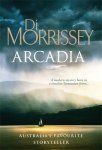

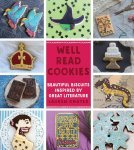
















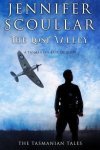











November 28, 2018
New Release Book Review: Beauchamp Hall by Danielle Steel
About the Book:
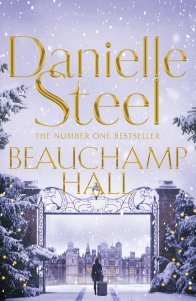
An uplifting, inspiring story about taking back control of your life, by the world’s favourite storyteller, Danielle Steel.
Winona Farmington can’t help but feel that life is passing her by, in backwater Michigan town. She hates her job, her boyfriend won’t commit. But she escapes the dreariness of everyday life with her favourite TV show, Beauchamp Hall, an English period drama.
When she makes a shocking discovery, Winona knows it’s time to make a change and travels to the picturesque English village that’s home to the world of Beauchamp Hall, in pursuit of a new adventure.
My Thoughts:
Beauchamp Hall, the latest release by the very prolific Danielle Steel, is a truly delightful novel, very much a modern fairy-tale with an absolutely gorgeous heroine at its heart. From the blurb, I quickly ascertained that the TV show within this novel, ‘Beauchamp Hall’, is very much a fictional version of ‘Downton Abbey’, which I loved, so there was the first tick of approval from me. The second comes from Winnie herself, whose love for books and reading mirrors my own.
‘There was always something comforting about holding her mother’s books. She loved the familiar feel and smell of them. The pages were yellowed, and it was like meeting up with an old friend as she began reading.’
Like I mentioned above, this novel had a modern fairy-tale feel to it which appealed to me greatly. After setbacks in both her working and personal life, Winnie leaves her small town in Michigan, USA, and travels to the English countryside, where she intends on visiting the set of her favourite TV show, Beauchamp Hall. In a series of events stemming from Winnie’s natural curiosity combined with her lovely nature, she ends up working on the set of the show. While her working life has improved immeasurably when compared to what she left behind in America, her love life is just as tragic, because she seems to have a knack for picking men who are single for a reason! One of the things I really enjoyed about this novel was that even though it is a romance, that’s not what defines Winnie’s happiness. Her happiness, when she finds it, comes from being in a place that she loves and from doing a job that she finds fulfilling and rewarding. When true love eventually does fall into her lap, she’s already happy, not desperately seeking it. I find this a refreshing way to present romance to modern women.
‘It had started with two DVDs in the white elephant game at Christmas in Michigan a year before. They had turned out to be the best gifts she had ever received and the key to her future. The dream had become a reality once she had the courage to pursue it. Who could have known? Who could have dreamed it or imagined it? Beauchamp Hall had changed her life. And in turn, she had come to Haversham and changed the lives of those who lived there. Reality had turned out to be so much better than her dreams.’
Beauchamp Hall is a novel I highly recommend this holiday season. It’s undemanding, quaint, and ultimately feel good.

November 27, 2018
Behind the Pen with Lily Malone
[image error]
I’m delighted to welcome contemporary country romance author Lily Malone to Behind the Pen today with a few of her favourites. Over to you Lily…
What is your favourite…and why…
Character from one of your books?
Is it weird if I pick a secondary character? I loved Erik – the one-armed bear of a swimming coach from Water Under The Bridge – and Erik doesn’t even get the girl in the end! He’s the main character, Ella’s, ex-husband and best friend… and she leaves him for super-hunky (and admittedly very lovely on the inside too) Jake. I wasn’t alone with this love for Erik. I got so many reader emails and comments and expressions that people loved Erik and felt sad for him when Ella falls in love with Jake. I also had other interesting comments that readers enjoyed me breaking from the stereotype. Usually an ‘ex’ in a story is someone to be feared. Someone in a romance who often comes along maliciously, to cause trouble for hero and heroine. Erik wasn’t like that. I wanted people to love Erik because Ella loves Erik, just not in the right way.
Scene from one of your books?
There’s a scene in my new book The Cafe By The Bridge, where Abe and Taylor climb the Granite Skywalk at the Porongurups (Mountain Range in WA). This is a real place, and I’ve done that walk. It’s a bloody hard walk! Taylor is a city girl and she sets off on this track with city shoes (dalmatian print no less) and she’s soon struggling. I love all my scenes. I really love a deleted scene from Cafe that I will host on my website when time is right. It is a scene showing Ella and Jake (from Book 1, Water Under The Bridge) when Jake proposes. I love that scene but my editors are Harlequin MIRA thought it wasn’t right including a proposal from characters from the first book, into this new story of Taylor and Abe.
Movie of all time?
All the original Star Wars series. The first 3 Jason Bourne movies featuring Matt Damon. And I love love love Bridget Jones Diary. I laugh every time she comes down that fireman’s pole!
Book that you always keep a copy of and recommend to others?
I have just about everything Raymond E Feist and Janny Wurts wrote together. I loved the Magician series, and the Empire series. I loved Jean M Auel’s ‘Earth’s Children’ series (the first 4 books). And just to show my practical side, I do recommend The Barefoot Investor – Scott Pape’s book about finance. It’s an eye-opener. It definitely made me pay attention to my superannuation and insurances, and gave me good hints about dealing with banks.
Fashion accessory that despite having plenty of, you still keep collecting?
This is the one where everyone answers ‘shoes’ right? How many pairs of shoes do you own by the way Theresa? And your readers are welcome to answer this question too! I’m off to count my current shoes… (I’m back, that didn’t take long). I have 13 pairs of shoes in my wardrobe, not counting slippers or Blundstones!
*(Not telling Lily! But it’s definitely more than 13…)*
Gee, I digressed! So the thing I collect (but I really don’t collect much) would be notebooks. I do love me some stationery! But I’m only talking maybe 4-5 notebooks. I’m not obsessive about collecting anything really. I’m not much of a shopper! I actually hate shopping for most things except plants and food! (and wine!) (and books!)
Drink that you enjoy everyday?
I am partial in summer to Corona beers. I love wine (no state secret there). I drink Fermoy Estate Sauvignon Blanc, and Geoff Merrill Rose, the most.
Treat you indulge in?
Eating out – especially lunching. I do love lunching. Otherwise every now and then I have a facial done with a gorgeous lady at Margaret River. We talk just about the entire time I’m there. I always leave her studio feeling like a princess.
Place to be?
Walking. Usually on the Cape to Cape track near where I love. I love orchid hunting, but walking in the outdoors soaking up either bush or coast or canyon is just about the ultimate for me.



Images left to right: Kalbarri (mid-north WA); Warty Hammer Orchid; Gracetown Creek
Person you admire?
I’m going to say my neighbour and friend, Carrie. She always impresses me because she is just so darn capable. She can reverse a campervan into the teeniest tiniest spaces. She can 4WD as well as any bloke. She’s strong. She’s a wonderful friend to many many people, and she has a big heart that always seems to have more room in it for more people and experiences.
Season of the year?
Spring and Summer. Spring for the wildflowers. Summer for the heat.
Connect with Lily:
The Cafe By The Bridge
[image error]
Child psychologist Taylor Woods needs a man. Flashy restaurateur Abel Honeychurch to be specific. Abe can help her get justice for her brother, Will. Taylor knows Abe, too, was scammed by the same woman who broke her brother’s heart and stole everything in his pockets.
But bringing a lying, cheating scammer to justice isn’t easy when all Abe wants to do is forget the whole sorry saga. He’s returned to his home town of Chalk Hill to lick his wounds and repay his debts, renovating his nanna’s house and opening the Chalk ‘n’ Cheese cafe.
He’s miserable. And it would be easier to stay miserable if everyone else around him wasn’t so darn cheerful. It’s wildflower season in Chalk Hill with a cafe full of upbeat bushwalkers, and it’s all Abe can do to remember to put sugar, not salt, in his customers’ cappuccinos. He definitely has no time for the mysterious red–headed guest who admires his cheesecake and adores his flat white.
Taylor’s mission to help her brother seems doomed – how will she gain the trust of a man whose every instinct tells him never to trust a woman again?
The Cafe By The Bridge (Chalk Hill Series Book 2) is out December 17 at all good bookstores – just in time for Christmas!
November 26, 2018
New Release Book Review: States of Passion by Nihad Sirees
Translated from the Arabic by Max Weiss
About the Book:
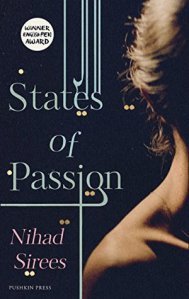
A hapless Aleppo bureaucrat is stranded in the middle of the deserted countryside as a violent storm sets in. When he seeks refuge in an isolated old mansion, inhabited by an aged gentleman and his sinister servant, he begins to uncover a captivating tale of family secrets, lost passions, and shady dealings.
He is transported by these stories to Aleppo’s golden age – a time of art, music, wealth and laughter – and the all-female society of the banat al-ishreh, a society of women who live, love, and perform song and dance together. And as he gradually realises how these entanglements of love and passion, cruelty and resentment, stretch across the generations, he discovers that his own life is also in danger.
Sirees spins astonishing literary beauty out of this tangled web of family secrets, and he writes with great humour and warmth about the conflict between past and present in this surprising and unique novel about a lost world.
My Thoughts:
States of Passion was first published in 1998 in Arabic with this English translation being released just last month. Set in Aleppo in the 1930s and 1960s, this novel was such a treat for me. I’ve never read any novels set in Syria, much less ones actually written in Arabic by a Syrian author, so the experience of learning about a different culture and setting was impossible for me to resist. As far as translations go, this one was to me, done very well. I can only imagine that Arabic is pretty far removed from English in terms of words and phrases, yet this story flowed as seamlessly as if it had been originally written in English. I am not surprised the translator, Max Weiss, has won awards for his work. Now, onto the story itself.
On a dark and stormy night, a lost traveller stumbles upon a mysterious house containing an elderly man and an odd butler. The old man offers him shelter, warmth, and an intriguing story…
So many classic novels spring to mind with this sort of opening and Nihad Sirees harnesses this classically gothic feel to perfection. States of Passion is a story within a story and it’s narrated as though the author is intimately telling you about a situation he himself had once gotten into. The story that the old man tells his guest is equally as intriguing as the story of the narrator and his experiences within the house in his few days of staying there. There’s something not quite right about the whole scenario and the increasing menace from the butler, combined with the urgency of the old man to tell his story, spills over into a terrific atmosphere of dread and mystery. Even more alarming is the effect this has on our narrator. As he begins to fear for his life, his desire to hear the rest of the story increases to a fever pitch, leading him into a state where he appears to take leave of his senses, culminating in a terrifically entertaining narrative that I could barely put down.
“At this point, dear reader, I’d like to confess that, in that moment, standing by the window, I felt a little bit afraid, especially since the house was shrouded in mystery, its furnishings and lighting as well as the way the servant behaved and the way he looked at you. The most mysterious thing about the house was its very existence there.”
Embedded within the story the old man tells is a wealth of information about Aleppo in the 1930s. It was so interesting to read about the social classes, the way of life, the customs, and Aleppo’s place within a world caught between two world wars. This novel really is a treasure trove for history lovers who thrive on learning about different cultures. Nihad Sirees certainly knows how to spin a good story. Fortunately, Max Weiss has also translated another of Nihad’s novels, The Silence and the Roar, which I’m keen to also read.

November 25, 2018
New Release Book Review: Arcadia by Di Morrissey
About the Book:
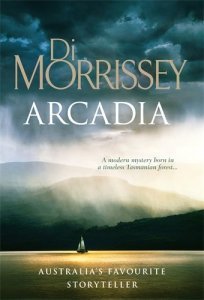
A breathtaking Tasmanian tale of ancient forests; of art and science; of love and, above all, of friendship.
In the 1930s, in an isolated and beautiful corner of southern Tasmania, a new young wife arrives at her husband’s secluded property – Arcadia. Stella, an artist, falls in love with Arcadia’s wild, ancient forest. And when an unknown predator strikes, she is saved by an unusual protector…
Two generations later, Stella’s granddaughter, Sally, and her best friend, Jessica, stumble over Stella’s secret life in the forest and find themselves threatened in turn.
What starts as a girls’ adventurous road trip becomes a hunt for the story of the past, to solve the present, and save their future…
A modern mystery born in a timeless Tasmanian forest, from Australia’s favourite storyteller.
My Thoughts:
There’s no doubting Di Morrissey’s claim to the title ‘Australia’s favourite storyteller’. She certainly knows how to deliver a good story. With its blend of family mystery, suspense, history and environmental awareness, Arcadia is a compelling novel that highlights the Tasmanian wilderness at its very best.
“She’d always been drawn to this quiet green world of ancient giants. This was more than schoolroom rhetoric of the great rainforests being the ‘lungs of the planet’; there was a reason these trees had stood as sentries for centuries. And yet how many millions of them had died in such a short amount of time, due to the actions of humans and climate? We’ve learned so little, she thought.”
While there is an historical storyline embedded throughout Arcadia, it is predominantly a contemporary story. There was a lot of intrigue set up within the historical narrative that from a history point of view, I’d have loved to have seen explored further. Smuggling, a secret affair, poaching, the polio epidemic; this was all touched on, but only in a passing sense. More time was given to the contemporary story, which at times, moved along a little too slowly and with less intrigue than the historical angle. This could be more me and my tastes though as everyone knows I prefer historical fiction over contemporary.
The setting was sublime and well realised on the page. I loved the seclusion of Arcadia and the way it was relatively untouched, not just in the environmental sense, but in the way generations of the one family were still living there, using some of the same furniture and drinking from the same teacups, wearing the same sturdy gumboots and toiling in the same garden beds. It’s in this world building that Di’s talents really show as she knows exactly how to bring a place to life for her readers. And I know a lot about mushrooms now, more than I ever imagined I would! A highlight for me was the bond between Stella and ‘her’ owls. That was a truly special aspect of this story.
Arcadia is a good read with wide appeal. As a hardback, it would make an ideal Christmas gift.

November 23, 2018
Bingo Blunder: When organised chaos just becomes chaos
Last week, on bingo Saturday, I wrote a post about how I’d forgotten about bingo in amoungst the flurry of end of year events. Since then, it’s come to my attention (thanks Sue G-G!) that I was in fact organised for that bingo week, I’d read a book for it, entered it into my bingo spreadsheet, wrote the post in my head and then promptly forgot about the entire thing! Next year’s spreadsheet is having a ‘date posted’ column!
The entry that was meant to be posted last week was:
A collection of short stories
[image error]
Because I don’t read many short story collections, on average one a year, An Evening in Paradise is it. I did deliberately read it with bingo in mind, and I think my confusion about last week’s post stems from the fact that I’ve already posted about this book twice. The first time was for Australian Reading Hour, and the second was with the full review. Somewhere along the line in my mind I became convinced that I had posted my short story bingo post, most likely because I knew I had posted about this book twice, and hence, confusion reigned supreme. Again, thanks Sue G-G for allowing me to confuse you so thoroughly that it eventually led to a lightbulb moment!
On An Evening in Paradise:
Lucia’s style is rather conversational, witty and desperately honest, sometimes painfully so. Not all of the stories were to my taste, some were a little difficult to follow, almost rambling. Others were perfection, a little slice of somebody’s life you were invited to bear witness to. Many of the characters popped up in multiple stories, but at different stages of their life than when you had previously encountered them. It was interesting to see them within a different context, also from a different perspective. I can’t help but think that some of these stories are autobiographical, with the recurring themes and characters.
Now, here is my bingo card with the entries I’ve done ticked off. Let’s hope we can get through the next two cycles without error!
[image error]
There are only two more bingo cycles left, next week, and then two weeks after that. I already identified last week which two books I would be reading. Here’s hoping I can finish this challenge with finesse.
This year I’m playing book bingo with Mrs B’s Book Reviews. On the first and third Saturday of each month, we’ll post our latest entry. We’re not telling each other in advance what we’re currently reading or what square we’ll be filling next; any coincidences are exactly that – and just add to the fun!
Follow our card below if you’d like to join in, and please let us know if you do so we can check out what you’re reading.
[image error]
November 22, 2018
Behind the Pen with Fiona McIntosh
[image error]
I am thrilled to welcome Fiona McIntosh as my guest for Behind the Pen today. To publish an interview with one of my favourite authors is such an honour and I’m incredibly grateful to Fiona for taking time out of her book tour to indulge me. Over to you, Fiona…
What provided the initial inspiration for The Pearl Thief?
I always begin with place and once I settled on Prague, my mind helplessly roamed to arguably its most painful part of history, which was the Occupation that was part of the early series of aggressions by the Germans that began WWII. And once you’re in that timeline, in a country that was Occupied, it is hard to ignore the plight of the Jewish people. And so I put it all together in my mind that it would be a survivor who escapes the German clutch and belongs to an aristocratic Czech Jew family. I needed something that would kick the modern part of the story into action and decided a magnificent piece of jewellery would form the impetus. The fabulous pearls so resonant in The Pearl Thief came from a visit to the British Museum many years ago where I saw an incredible piece of jewellery from the early middle ages. It was in solid, articulated gold and could well have been a Viking piece. While I never forgot it, over the years my recall of it dulled and I was convinced it was a single strand of magnificent pearls. The Museum spent hours looking for it and was as baffled as I until we discovered my error to much laughter. Nevertheless, the extraordinary piece remained as perfect, massive pearls in my mind and I decided they were Ottoman, given to a favourite odalisque of the Murad who later made her his first and most important wife. I then built a provenance around this piece of how it travelled from Constantinople in the twelfth century to Russia and later into Eastern Europe finding its way into an aristocratic Jewish family. It was fun creating that fiction alone.
What is your favourite character from The Pearl Thief and why?
Without doubt it’s Katerina. For the first time in my writing career a character arrived into my mind whole. She tapped me on the shoulder while I was researching in Prague and I knew her. I knew everything about her in that moment; how she looked, sounded, her mannerisms, her fashion and tastes. Most importantly, I could touch her fragility and damage. She was a marvellous character to work with.
What is your favourite scene from The Pearl Thief and why?
I don’t know if it’s my favourite scene but I do believe the prologue is vital and sets the tone and undercurrent for the story and was hugely emotional to research and even more powerful to write. There is another scene that is harrowing and writing it was a massive challenge to keep it respectful to the reader who doesn’t know it’s coming and yet ensuring it is full of rage and oxygen and sufficient horror to lay the base for my main character’s damage and decision to turn around and face her demons. This is the story of a survivor so it needs this powerful scene that shreds at one’s emotions. It tormented me to write it but I like it from the point of view that it demanded and found the very best of me to craft it.
I love the scene when Katerina finds her own power within and there’s a killer line when she explains to another character her intention. It’s extremely uplifting and sets the story on a new course.
As you can see, too many scenes to single one out. If I’m pressed for absolute favourite because it brought me pure pleasure to include and to write, then it’s Katerina at Robin Hood’s Bay meeting a character again and I believe it’s one all the readers will love because it gives them a chance to sigh out their tension and worry for her. However, her real adventure is only just beginning but this chapter offers a marvellous release…just for a brief time. 
November 21, 2018
New Release Book Review: A Well-Behaved Woman by Therese Anne Fowler
About the Book:
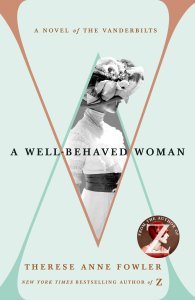
OUTSPOKEN. BRAVE. BRILLIANT. FIERCE.
Alva Smith, her Southern family destitute after the Civil War, married into one of America’s great Gilded Age dynasties: the newly wealthy but socially shunned Vanderbilts. Ignored by New York’s old-money circles and determined to win respect, she designed and built nine mansions, hosted grand balls, and arranged for her daughter to marry a duke. But Alva also defied convention for women of her time, asserting power within her marriage and becoming a leader in the women’s suffrage movement.
With a nod to Jane Austen and Edith Wharton, Therese Anne Fowler paints a glittering world of enormous wealth contrasted with desperate poverty, of social ambition and social scorn, of friendship and betrayal, and an unforgettable story of a remarkable woman.
GOOD BEHAVIOUR WILL ONLY GET A WOMAN SO FAR.
My Thoughts:
‘The wealthy have a responsibility to avoid decadence and corruption.’
A Well-Behaved Woman is the second novel in recent times that I’ve read covering the so-called ‘Gilded Age’ in America. This one was definitely the superior of the two, and in hindsight, I can’t help but ponder on the similarities between them. This one is based on the life of Alva Vanderbilt, while the other one was entirely fictitious, however that author did say it was inspired by well-known families of the Gilded Age, of which the Vanderbilts were one, so I’m thinking this is where the similarities have stemmed from. I have to say, I don’t think I need to read anymore novels set in the Gilded Age to sway my opinion that the ‘society set’ were the most ludicrous bunch of human beings to have ever existed.
‘A most ingenious lady costumed as Cat, with rows of white cats’ tails made into an overskirt, and an actual cat’s pelt – head and all – fashioned into a hat.’
‘All conversation ceased at the sight of the first group of eight dancers in the wide, arched doorway, done up as lords and ladies riding life-size hobbyhorses, each rider dressed in a red coat as if ready for the hunt. The horses had taken two months to construct. Covered in real horsehide, each one had big bright eyes and a horsehair mane and tail.’
Too much money being spent on outrageous (and as cited in the above quotes, at times inhumane) extravagance with only a very few of them devoting time and money to charity, improvement of public works and philanthropy. And the never-ending judgement and conceit; where did these ‘rules’ even come from, anyway? Therese Anne Fowler does a really great job at conveying the intricacies of New York ‘society’ and it was interesting how she framed Alva, a woman who knew she needed to be a part of it while still regarding it with a level of realistic disdain all the same.
‘A person might easily come to think that this ball, this house, Alva’s efforts to improve culture and to beautify New York, were only about Alva wanting to elevate herself, with the Vanderbilt family getting the secondary benefits of her rise. One might conclude that she’d put personal ambition above all else in order to feed an insatiable vanity. Well, let them, she thought. An intelligent woman in this world takes her chances where she finds them.’
I really did like Alva, from the beginning right through to the end. She’s not a woman I knew anything about before reading this novel but since doing so, I’m grateful to the author for her thorough and sympathetic account of Alva’s life. This is an entertaining novel, witty and smart, emotionally wrenching at times and highly captivating. I really had to drag myself away from it. Of late, this style of novel, biographical historical fiction, has become one of my favourites, particularly when it’s about the ‘forgotten’ achievements of women from the past. In her real life, Alva very much was a ‘well-behaved woman’, until the point where she realised that it had only gotten her so far. It was at this point that she really came into her own.
‘This life! What had she done, bringing a daughter into such a trap as every man laid for women like them? Good, dutiful women, women who could be counted on, who could be trusted. Even they could be horribly misused.’
Despite spending twenty years clawing her way to the top of society and working to maintain her status, I absolutely loved her for standing firm and divorcing her husband for adultery, for not accepting that she turn the other way, for showing her daughter, and other women, that being treated with respect within a marriage should be the rule, not the exception. For being smart enough to know that society, and indeed, even the economy, would not collapse just because women began to divorce their husbands.
‘I would like gentlemen to stop provoking in their wives the desire to divorce them! Perhaps that is the lesson our esteemed friends will take away from this parting of one of our ‘great men’ from so much of his money.’
My only disappointment with this novel comes from it finishing too soon with Alva. When we leave her, she is just beginning to assert her place on the women’s suffrage stage. The author note gives us details on Alva’s achievements: She formed her own women’s suffrage organisation, the Political Equality Association (PEA) and was one of just a few suffragists who deliberately encouraged and included African American women’s involvement in the fight for the vote. Alva’s association sponsored lectures on a variety of subjects, all aimed at educating women so that they could be empowered to make good choices for themselves and their children. It also operated a Department of Hygiene, wherein women took classes about health that included information on reproduction and contraception, which they could not get from most physicians in that era. They even sold devices for treating uterine prolapse, a common problem for women who’d had multiple pregnancies over a short span of time. She worked tirelessly in so many ways for passage of the Nineteenth Amendment, and beyond this, campaigning for equal rights. This is the sort of Alva I wanted to read more about, and I can’t help but wish in hindsight for a thinning down of the earlier parts focusing on the frivolity of society in preference of the addition of another part to the novel focusing solely on these later achievements. It just seemed like Alva’s story, her real story, was only just beginning at the end of the novel.
All in all, A Well-Behaved Woman is a fine novel and will please those who enjoy historical fiction, particularly biographical, and it provides plenty of incentive for further reading. Alva was certainly a daring and inspirational woman. As so often is proving the case as I read more and more about such women from history, they rarely got to spend enough time with their true soulmates.
‘Yet it was always there. An affinity. A kind of chemistry between us. The tether of gravity, I would say, no less powerful than the moon to the earth or the earth to the sun.’
Alva was no exception to this, but I guess a little bit of happily ever after is still better than none at all.

November 20, 2018
Behind the Pen with Matt Ferraz
[image error]
I am delighted to introduce Matt Ferraz to you all today. His novel, Sherlock Holmes and The Glad Game, combines two great classic characters that couldn’t be more different, into the one story. Welcome to Behind the Pen Matt!
What inspired you to write Sherlock Holmes and The Glad Game?
I’ve been a Sherlockian since my childhood, and wanted to write a book with the character for a while. But I didn’t want it to be just an ordinary case for the detective. There are so many book crossovers between classic characters out there, like Holmes and Captain Nemo, Holmes and War of the Worlds, Holmes and Jack the Ripper… But I wanted to bring something new to the table, so I pictured a character that, apparently has nothing to do with crime and adventure. So I went with Pollyanna Whittier, from the Glad Game novels by Eleanor H. Porter. I must say that, while I was working on this book, my friends and family thought it was an impossible idea to pull off. In the end, they agreed I did a great job.
What is your favourite character from this novel and why?
It was such a joy to write Pollyanna, a character who always sees the good side of life. She provided the funniest bits in the book. I also liked to write Holmes as a more humane and sympathetic character, instead of the arrogant douchebag that seems to be the norm in the movie and TV adaptations from the past few years.
What is your favourite scene from this novel and why?
There’s a scene at the climax of the book where Pollyanna saves the day by reciting a poem. It’s my favorite scene, because I think it’s where she proves to be tough without losing her tenderness.
How would you describe this novel if you could only use 5 words?
Detectives come in many forms.
How much planning do you do? Do you plan/plot the entire story from beginning to end, or let it evolve naturally as the writing progresses? In terms of characters, are they already a firm picture in your mind before you start writing or do they develop a personality of their own as the story progresses?
Planning the whole plot in advance is something that has never worked well for me. I prefer to write the first ten thousand words first. By that point I know the characters and story well enough, and then start planning the next steps.
These are mostly pre-existing characters, but I tried to give them a different vibe, especially after they start interacting. This is a more mature Pollyanna than the one from Pollyanna Grows Up, she’s been through a lot. Holmes and Watson also go through a few changes, while remaining mostly the same. The biggest difference is with Watson’s wife, Mary. I took a liberty with this character, because Watson had several wives in the Conan Doyle cannon, and for my book to work, I had to stick with Mary all along. I hope the Holmes fans will give me a pass on that.
Where do you draw your inspiration from? How do you fill up that creativity well?
Lots of reading, in the first place. It’s a cliche, I know, but you have to read a lot if you want to write well. Watching movies is also important. And I like to read narrative theory, it helps seeing the art of storytelling in a more analytical way, and later apply that to my own work.
How far has your writing career evolved from when you first began to write to what it is today? Is this in line with your initial expectations?
Now I know a lot more about the writing and publishing process, and it has become much easier to finish a book, and also to publish and market it. It’s not as scary as it used to be when I first started. I’m 28 years old now, so I think I’m in the right track.
Are you balancing a different career with your writing? How do you go about making time for your writing within limited hours?
I work with marketing, which is something I also apply to my literary endeavours. My spare time is mostly for reading and writing, and I have to be tough on myself, or else I’d never finish anything.
Where do you normally write? Is it in the same place every day or are you an all over the place writer?
I have a small desk with a computer, which is really all you need. It’s important to have a separate space for your writing, it helps with keeping the ideas together.
Do you have an all-time favourite book? Why is this book so significant to you?
Liev Tolstoy’s Anna Karenina is, to me, the single greatest literary work ever written. But the most important book in my life is The Strange Case of Dr. Jekyll and Mr. Hyde. I was eleven the first time I read this novella, and have re-read it at least twenty times over the years. This book opened my mind to a new world, and I’m deeply grateful to Robert Louis Stevenson for having written it.
Sherlock Holmes and the Glad Game
[image error]
British sleuth Sherlock Holmes can solve any mystery from a small clue. American traveler Pollyanna Whittier can only see the good side of every situation. The only thing they have in common is their friendship with Dr. John Watson. When Pollyanna shows up in London with a mystery for Holmes to solve, she decides to teach the detective the Glad Game: a way of remaining optimistic no matter what. A dangerous – and hilarious – clash of minds, where these two characters of classic literature need to learn how to work together in order to catch a dangerous criminal.
Released on 23rd November 2018



